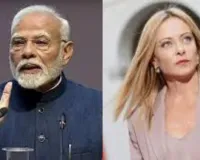Indian Court rejects X's Free Speech Plea: Foreign companies cannot claim Constitutional Rights under Indian Law
Digital Desk
The Karnataka High Court has delivered a landmark ruling against Elon Musk's social media platform X, rejecting its constitutional challenge to India's content takedown mechanism. The court ruled that foreign companies like X cannot invoke Article 19 free speech protections under Indian law, which are reserved exclusively for Indian citizens.
Court's Key Ruling on Constitutional Rights
Senior Judge M. Nagaprasanna, while delivering the verdict on September 24, 2025, stated unequivocally: "Article 19 of the Constitution of India, noble in its spirit and luminous in its promise, remains, nevertheless, a Charter of Rights conferred upon citizens only. The petitioner who seeks sanctuary under its canopy must be a citizen of the nation, failing which the protective embrace of Article 19 cannot be invoked".
The judge emphasized that American free speech jurisprudence cannot be transplanted into Indian constitutional thought, noting that while X complies with takedown laws in the United States, it refuses to follow similar directives in India.
Sahyog Portal: India's Content Regulation Mechanism
At the center of this legal battle is the Sahyog portal, launched by the Union Home Ministry in October 2024. The portal, whose name means "assistance" in Hindi, serves as a centralized platform allowing government authorities to directly issue content takedown orders to social media companies.
The portal operates under Section 79(3)(b) of the Information Technology Act, 2000, which allows intermediaries to lose their "safe harbor" protection if they fail to remove unlawful content after being notified by government agencies. Between October 2024 and April 2025, the government issued 130 content takedown notices through Sahyog to major platforms including Google, YouTube, Amazon, Microsoft, LinkedIn, and ShareChat.
X's Legal Challenge and Government Response
X filed its petition in March 2025, challenging multiple government orders directing the platform to block accounts and posts, including content critical of official policies. The company characterized Sahyog as a "censorship portal" and argued that the system lacked transparency and violated principles of free expression.
Government data revealed that between March 2024 and June 2025, authorities ordered X to remove approximately 1,400 posts or accounts, with more than 70% of these notices issued by agencies under the Home Ministry's control. The cybercrime unit analyzed nearly 300 posts deemed unlawful, including misinformation, hoaxes, and child sexual abuse material.
Court's Stance on Social Media Regulation
The Karnataka High Court strongly defended the need for social media regulation, stating that platforms "cannot be left in a state of anarchic freedom." Justice Nagaprasanna observed: "Social media needs to be regulated, and its regulation is a must, more so in cases of offences against women, in particular, failing which the right to dignity as ordained in the Constitution gets railroaded".
The court described the Sahyog portal as "far from being a constitutional anathema" and instead called it an "instrument of public good conceived under the authority of Section 79(3)(b) of the IT Act". The judgment emphasized that no social media platform can treat the Indian marketplace as a "playground" and must accept that access comes with responsibility and accountability.
Rising Content Takedown Trends
Content removal requests have significantly increased in India as internet usage expands. During the 2020-2021 farmers' protests, platforms including X, Facebook, and Instagram were ordered to remove several posts critical of government policies. The trend has continued with orders targeting various forms of content, from fake news and misinformation to posts allegedly spreading communal disharmony.
What's Next for X
While X has not yet responded to the ruling, the company retains the option to appeal to the Supreme Court of India. However, legal experts believe the top court is unlikely to rule differently, given the established precedent that constitutional rights under Article 19 are citizen-centric.
This ruling represents a significant victory for the Indian government's approach to regulating global technology platforms and establishes a clear precedent that foreign companies cannot claim fundamental rights protections under the Indian Constitution when operating in the country.

18.png)
15.png)
10.png)





.jpg)
.jpg)
